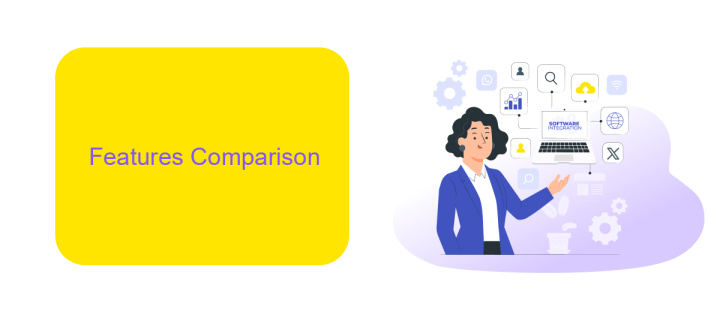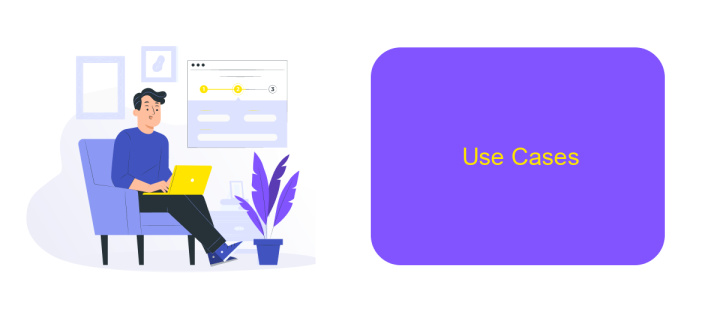Google Endpoints Vs Apigee
Choosing the right API management solution is crucial for the success of modern digital enterprises. Google Endpoints and Apigee are two prominent options that offer robust features for managing APIs. This article delves into a comparative analysis of these two platforms, examining their capabilities, performance, and suitability for different business needs to help you make an informed decision.
Introduction
In the evolving landscape of API management, choosing the right platform is crucial for ensuring seamless integration and optimal performance. Google Endpoints and Apigee are two prominent solutions that offer robust features for managing APIs. Each platform comes with its own set of advantages and potential drawbacks, making it essential to understand their unique offerings before making a decision.
- Google Endpoints: A lightweight, distributed API management system that integrates with Google Cloud services.
- Apigee: A comprehensive API management platform that provides advanced analytics, security, and monetization features.
When comparing these platforms, consider factors such as scalability, ease of use, and specific business needs. Additionally, tools like ApiX-Drive can further enhance your integration efforts by automating data transfer between different apps and services, simplifying the workflow. This introduction aims to provide a foundational understanding of Google Endpoints and Apigee, setting the stage for a deeper exploration of their capabilities.
Features Comparison

Google Endpoints and Apigee both offer robust API management solutions, but they cater to different needs. Google Endpoints is a lightweight, serverless solution that is ideal for developers looking to deploy and manage APIs quickly. It integrates seamlessly with Google Cloud services and supports OpenAPI, making it easy to define and monitor APIs. On the other hand, Apigee provides a more comprehensive suite of tools for API management, including advanced analytics, security features, and monetization options. This makes Apigee suitable for enterprises requiring extensive API management capabilities.
When it comes to integration settings, both platforms offer significant advantages. Google Endpoints simplifies the integration process with built-in support for Google Cloud services. Apigee, however, excels in its ability to integrate with a wide range of third-party services and offers robust tools for API lifecycle management. For those looking to streamline integrations further, services like ApiX-Drive can be beneficial. ApiX-Drive provides an intuitive interface to connect various apps and automate workflows, enhancing the integration capabilities of both Google Endpoints and Apigee.
Pricing and Support

When comparing Google Endpoints and Apigee, pricing and support are two crucial factors to consider. Both platforms offer robust API management solutions, but they differ significantly in cost structures and support options.
- Google Endpoints: Google Endpoints operates on a pay-as-you-go model, where you are charged based on the number of API calls made. This can be cost-effective for smaller projects but may become expensive as your API usage scales up.
- Apigee: Apigee offers a more comprehensive pricing model that includes different tiers based on the number of API calls, users, and additional features. This can provide more predictable costs for larger enterprises with high API traffic.
In terms of support, Google Endpoints offers community support and a range of documentation, while Apigee provides more extensive support options, including enterprise-level support and dedicated account managers. For those looking to simplify their integration processes, services like ApiX-Drive can be beneficial, offering seamless integration capabilities and additional support to streamline API management tasks.
Use Cases

When deciding between Google Endpoints and Apigee, understanding their use cases is crucial. Both platforms offer robust API management solutions, but they cater to different needs and scenarios.
Google Endpoints is ideal for developers looking for a simple, scalable solution to expose their APIs. It integrates seamlessly with Google Cloud services, making it a natural choice for applications already hosted on Google Cloud Platform. On the other hand, Apigee provides a more comprehensive suite of tools for enterprises needing advanced API management capabilities, including analytics, security, and monetization features.
- Small to medium-sized projects: Google Endpoints
- Enterprise-level applications: Apigee
- Seamless integration with Google Cloud: Google Endpoints
- Advanced API analytics and security: Apigee
- Automated integration workflows: ApiX-Drive
For businesses requiring automated integration workflows, ApiX-Drive can complement both Google Endpoints and Apigee. It simplifies the process of connecting various services and automating data flows, enhancing the overall efficiency of your API management strategy.
Conclusion
In conclusion, both Google Endpoints and Apigee offer robust solutions for API management, each with its unique strengths and capabilities. Google Endpoints provides a cost-effective, scalable option that integrates seamlessly with other Google Cloud services, making it an excellent choice for developers looking to leverage the Google ecosystem. On the other hand, Apigee stands out with its advanced analytics, security features, and extensive support for complex API management needs, catering to enterprises that require a more comprehensive solution.
When deciding between the two, it is essential to consider your specific requirements, such as the scale of your operations, budget, and the level of control and customization you need. Additionally, tools like ApiX-Drive can further enhance your API management strategy by simplifying integration processes and automating workflows, making it easier to connect various services and platforms. Ultimately, the best choice will depend on your unique business needs and how each platform aligns with your goals.


FAQ
What are the key differences between Google Endpoints and Apigee?
Which platform is better for a small startup?
Can both Google Endpoints and Apigee be used together?
How do they handle API security?
Is there a way to automate and integrate these platforms with other services?
Time is the most valuable resource in today's business realities. By eliminating the routine from work processes, you will get more opportunities to implement the most daring plans and ideas. Choose – you can continue to waste time, money and nerves on inefficient solutions, or you can use ApiX-Drive, automating work processes and achieving results with minimal investment of money, effort and human resources.

